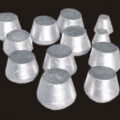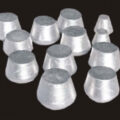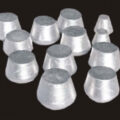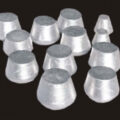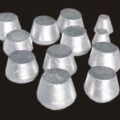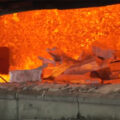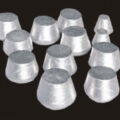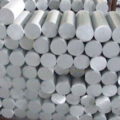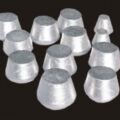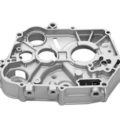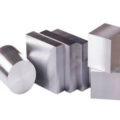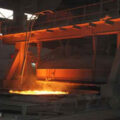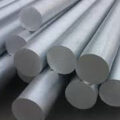The silicon phase in the aluminum-silicon alloy eutectic will grow into flakes under spontaneous growth conditions, and even thick polygonal tabular silicon phases will appear. These silicon phases will severely split the Al matrix at the tips and corners of the Si phase. Causes stress concentration at the location, the alloy is easy to crack along the grain boundary, or the tabular Si itself cracks to form cracks, which makes the alloy brittle, the mechanical properties, especially the elongation, are significantly reduced, and the cutting function is not good. In order to change the existing state of silicon and improve the mechanical properties of the alloy, Strontium modification treatment technology has been used for a long time.
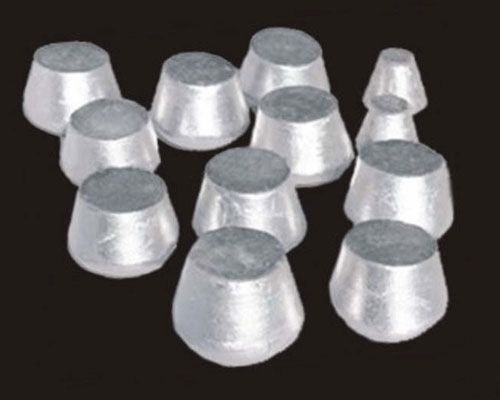
The elements that have a modification effect on eutectic silicon are: sodium (Na), strontium (Sr), sulfur (S), lanthanum (La), cerium (Ce), antimony (Sb), tellurium (Te), etc. The current research mainly focuses on several modifiers such as sodium, strontium and rare earth.
Strontium (Sr) is a long-acting modifier, the modifier effect is equivalent to sodium, and there is no shortcoming of sodium deterioration, it is a promising modifier. The United Kingdom, the Netherlands and other countries have promoted the application of strontium (Sr) deterioration methods since the early 1980s. At present, many studies have been done at home and abroad regarding the deterioration of strontium, and the scale of using strontium (Sr) instead of sodium or sodium salt in China is also increasing.
Strontium Modification Treatment has the following advantages:
①Good deterioration effect and long validity period;
②The deterioration process is smokeless, non-toxic, does not pollute the environment, does not corrode equipment and tools, does not damage health, and is convenient to operate;
③It is easy to obtain satisfactory mechanical properties;
④ The recycled material has a certain effect of remelting and metamorphism;
⑤The casting yield is high and the comprehensive economic benefits are significant. However, practice has shown that the modified alloy is prone to shrinkage porosity, which increases the pinhole degree of the casting, reduces the compactness of the alloy, and the mechanical properties decline.

